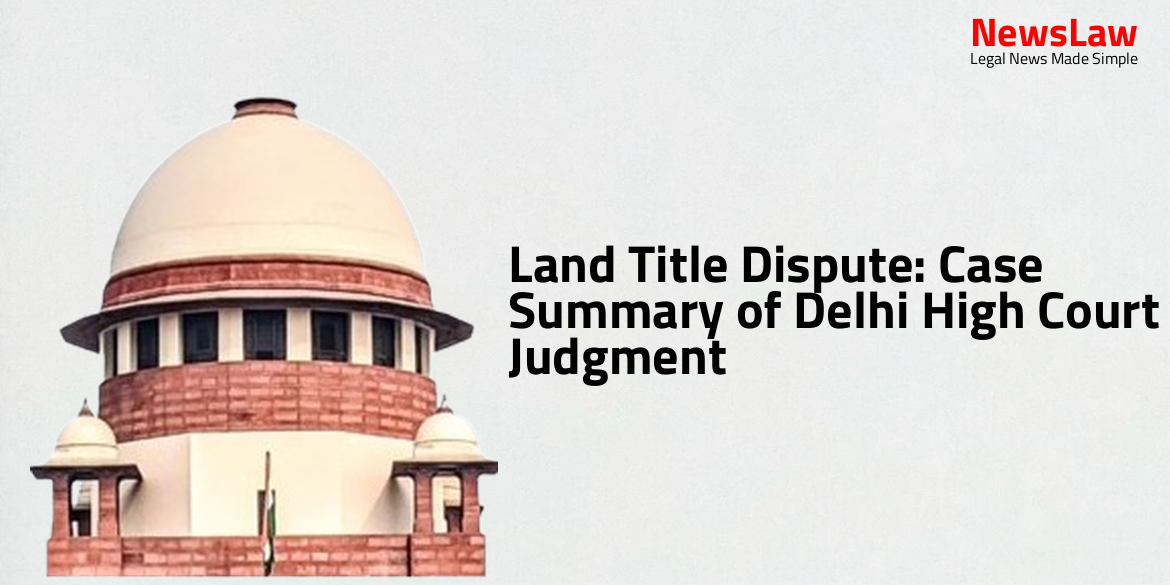8969 OF 2022 M/s Sidha Neelkanth Paper Industries Private Limited & Another…
Appellants Versus Prudent ARC Limited & Others… Respondents WITH CIVIL APPEAL NO. 5494/2021, 5470/2021 and 5478/2021, by which the High Court has dismissed the said writ petitions preferred by the original writ petitioners – auction purchasers and has confirmed the orders passed by the Debt Recovery Appellate Tribunal, Allahabad (for short, ‘DRAT’), by which the DRAT while entertaining the appeals under Section 18 of the SARFAESI Act held that the borrower is not liable to deposit 50% of the amount of debt as the secured property has been sold and the amount is realised as the same was paid by the auction purchasers and is to be appropriated towards the amount liable to be deposited as pre-deposit under Section 18 of the SARFAESI Act. In the year 2010, the Andhra Bank sanctioned open cash credit limit for a sum of Rs. After taking over the existing cash credit facility, a further ad-hoc open cash credit to the tune of Rs.
Since the amount demanded was not paid under Section 13(2) of the SARFAESI Act, measures under Section 13(4) of the SARFAESI Act were initiated by the Bank and possession of one of the mortgaged properties, being property bearing No 170, Deepali, Pitampura, Delhi-110034 was taken. 12791/2018
before the High Court challenging the assignment of debts by Andhra Bank, which came to be dismissed by the High Court on 28.11.2018. 616/2018 challenging the order dated 05.12.2018 passed by the DRT dismissing the application filed by the borrower praying that the Bank/assignee be restrained from proceeding with the auction. The borrower sought waiver of the statutory pre-deposit under Section 18 of the SARFAESI Act, relying on the earlier order dated 26.12.2018 passed in Writ Petition No. The DRAT allowed the waiver of the statutory pre-deposit by observing that the amount already realised by selling the mortgaged property/secured property is required to be adjusted towards the pre-deposit and/or the same can be said to be a deposit of 50% of the amount as pre-deposit, as envisaged under Section 18 of the SARFAESI Act. (b) While computing the “ amount of debt due ”, the amount of debt claimed by he secured creditor in its notice issued under Section 13(2) of the Act, shall be relevant and any future interest need not be taken into consideration for purposes of determining, “ the amount of debt due as claimed by the secured credit”, in cases where the DRT has not determined the liability of a borrower. Factual Aspects in Civil Appeal Nos.8972, 8973 & 8974 of 2022 : That the respective respondents in the present appeals took financial assistance by way of a Home Loan to the tune of Rupees one crore fifty lakhs from Bank of Baroda – the financial creditor. Upon committing the default in returning the loan amount, the Bank issued a demand notice dated 3.8.2019 under Section 13(2) of the Securitisation and Reconstruction of Financial Assets and Enforcement of Security Interest Act, 2002 (hereinafter referred to as the ‘SARFAESI Act’) for a debt of Rs. Being aggrieved by the order dated 13.11.2020 passed by the DRT, the borrower approached the DRAT by way of Appeal No.344/2020 along with an application seeking waiver of the pre-deposit of the amount under Section 18 of the SARFAESI Act. By the impugned common judgment and order, the High Court dismissed the said writ petitions by observing that the borrower is not liable to deposit 50% of the amount of the debt as initially claimed by the secured creditor in view of the recovery of the amount by way of an auction sale. 61 crores
Also Read: https://newslaw.in/case-type/civil/acquisition-of-land-and-deemed-lapse-under-the-act-2013/
and therefore no further order could have been passed directing the principal borrower to deposit any amount towards pre- deposit as required under Section 18 of the SARFAESI Act. It is contended that the said order is under challenge by the financial institution in the present case and it is the case on behalf of the financial institution that the High Court ought to have directed the borrower to deposit 50% of the original amount of debt of Rs. 2 It is further submitted that as per proviso to Section 18 of the SARFAESI Act, the amount of pre-deposit is to be calculated in respect of the amount of “debt due” and the “debt” in SARFAESI Act is defined in Section 2(ha). It is averred that therefore in the present case, the High Court has erred in allowing adjustment of the amount recovered from sale of secured assets, the amount which has been deposited by the auction purchaser and not borrower while considering pre-deposit under Section 18 of the SARFAESI Act. Shri Vinay Navare, learned Senior Advocate appearing on behalf of the auction purchaser, in addition, has vehemently submitted that the requirement of deposit under Section 18 of the SARFAESI Act is not for the purpose of securing payment of the creditor. It says that the “ borrower shall deposit ”, which means such amount is required to be brought in by the borrower and the amount standing with creditor through auction sale cannot be for the benefit of the borrower. That thereafter the special leave petition came to be dismissed and in an appeal challenging the proceedings under the SARFAESI Act, the borrower wanted to adjust and/or appropriate the amount deposited pursuant to the order passed by this Court and that Court negatived the same by observing that the amount deposited pursuant to the order of this Court cannot be adjusted in pre-deposit. Learned counsel appearing on behalf of the original borrowers have supported the impugned judgment and order passed by the High Court of Madhya Pradesh and have submitted that the High Court has not committed any error in dismissing the writ petitions and confirming the orders passed by the DRAT by which the DRAT after adjusting/appropriating the amount realised by sale of the secured property held that the borrowers are not required to deposit any further amount towards pre-deposit as the amount realised is more than 50% of the ”debt due”.
—(1) Any person aggrieved, by any order made by the Debts Recovery Tribunal [under section 17, may prefer an appeal along with such fee, as may be prescribed] to an Appellate Tribunal within thirty days from the date of receipt of the order of Debts Recovery Tribunal.
2(ha)
“debt” shall have the meaning assigned to it in clause (g) of section 2 of the Recovery of Debts Due to Banks and Financial Institutions Act, 1993 (51 of 1993) and includes— (i) unpaid portion of the purchase price of any tangible asset given on hire or financial lease or conditional sale or under any other contract; (ii) any right, title or interest on any intangible asset or licence or assignment of such intangible asset, which secures the obligation to pay any unpaid portion of the purchase price of such intangible asset or an obligation incurred or credit otherwise extended to enable any borrower to acquire the intangible asset or obtain licence of such asset; Section 2(g) of the Recovery of Debts and Bankruptcy Act, 1993 – “debt” means any liability (inclusive of interest) which is claimed as due from any person [or a pooled investment vehicle as defined in clause (da) of section 2 of the Securities Contracts (Regulation) Act, 1956 (42 of 1956),] by a bank or a financial institution or by a consortium of banks or financial institutions during the course of any business activity undertaken by the bank or the financial institution or the consortium under any law for the time being in force, in cash As per section 2(g) of the Act 1993, “debt” means any liability inclusive of interest which is claimed as due from any person….., by a bank or a financial institution during the course of any business activity undertaken by the bank or the financial institution, in cash or otherwise, whether secured or unsecured, or assigned, or whether payable under a decree or order of any civil court or any arbitration award or otherwise or under a mortgage and subsisting on, and legally recoverable on the date of the application.
Therefore, whatever amount is mentioned in the notice under Section 13(2) of the SARFAESI Act, in case steps taken under Section 13(2)/13(4) against the secured assets are under challenge before the DRT will be the ‘debt due’ within the meaning of proviso to Section 18 of the SARFAESI Act.
Also Read: https://newslaw.in/case-type/civil/taxation-of-engineering-design-drawings-goods-or-services/
If the words used in the second proviso to Section 18 of the SARFAESI Act are “ borrower has to deposit ”, it is not appreciable how the amount deposited by the auction purchaser on purchase of secured assets can be adjusted and/or appropriated towards the amount of pre-deposit, to be deposited by the borrower. In a case where the borrower also challenges the auction sale and does not accept the same and also challenges the steps taken under Section 13(2)/13(4) of the SARFAESI Act with respect to secured assets, the borrower has to deposit 50% of the amount claimed by the secured creditor along with interest as per section 2(g) of the Act 1993 and as per section 2(g), “debt” means any liability inclusive of interest which is claimed as due from any person.
While negativing the said submission, the Bombay High Court considered the purpose and object of the SARFAESI Act in paragraph 14 as under: “14. There was no legal provision for facilitating securitisation of financial assets of banks and financial institutions, and unlike international banks, the banks and financial institutions in India did not have the power to take possession of securities and sell them. The preamble of this amending Act indicates that the same was intended to further amend the SARFAESI Act, the RDDB Act, the Indian Stamp Act, 1899 and the Depository Act, 1996 and for matters connected therewith or incidental thereto.” Thereafter, the Bombay High Court considered in detail Section 18. The 2 proviso to Section 18(1) stipulates that no appeal shall be entertained by the DRAT unless the borrower has deposited with it 50% of the amount of debt due from him, as claimed by the secured creditors or as determined by the DRT, whichever is less. What becomes clear from the aforesaid provisions is that there is a jurisdictional bar from entertaining an appeal filed by the borrower from an order passed under Section 17, unless the borrower deposits 50% of the amount of debt due from him, as claimed by the secured creditors or as determined by the DRT, whichever is less.
The Bombay High Court did not accept the said submission by observing that it would be ludicrous to suggest that the money realised by the bank from sale of the secured assets could be used by the borrower to fulfil the condition of pre-deposit under Section 18. In view of the above and for the reasons stated above, in the present case, the respective High Courts have seriously erred in directing to adjust/appropriate the amount realised by auction sale of the secured properties/deposited by the auction purchasers while considering the 50% of the amount as pre-deposit to be deposited by the borrower, while preferring an appeal before the DRAT. It is observed and held that the borrower has to deposit 50% of the amount of “debt due” as claimed by the bank/financial institution/assignee along with interest as claimed in the notice under Section 13(2) of the SARFAESI Act and the borrower is not entitled to claim adjustment/appropriation of the amount realised by selling the secured properties and deposited by the auction purchaser when the auction sale is also under challenge. Consequently, Civil Appeal
Case Title: SIDHA NEELKANTH PAPER INDUSTRIES PVT. LTD. Vs. PRUDENT ARC LIMITED (2023 INSC 14)
Case Number: C.A. No.-008969-008969 / 2022



